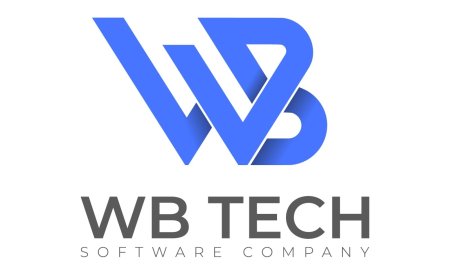How Safe Is It to Use Online Class Help Services?
Wondering if online class help services are safe? Discover the risks, benefits, and how to choose secure online course assistance without compromising your academics.

As online education becomes increasingly common, many students are turning to online class help and Online Course Assistance to manage academic workloads. Whether it’s for a single assignment or full-course support, these services offer convenience, flexibility, and improved academic performance.
But an important question remains: Is it safe to use online class help services? This article takes a clear, in-depth look at the safety concerns, potential risks, and how students can use these services responsibly and securely.
Understanding Online Class Help Services
Online class help refers to third-party academic support that assists students with their online courses. This includes services such as:
-
Assignment and homework assistance
-
Exam preparation and quiz help
-
Discussion board participation
-
Full-course management
-
Tutoring and one-on-one guidance
The demand for these services has grown as students balance school, work, and personal responsibilities. But with this rise comes a need to evaluate their safety and legitimacy.
Why Safety Matters
Using any external service for academic support carries potential risks—academic, financial, and personal. Institutions often have strict academic integrity policies, and working with an unreliable provider can lead to serious consequences, including failed courses or disciplinary action.
Understanding what makes a service safe or unsafe is critical before engaging with any platform offering online course assistance.
Key Safety Concerns to Consider
1. Academic Integrity
Many schools have strict policies against outsourcing academic work. If a service completes your exams or assignments for you without your participation, it could violate your institution’s honor code.
To avoid issues, students should seek support services that provide tutoring, guidance, or editing—not complete substitution of academic work.
2. Privacy and Data Security
You’ll often need to share login credentials, course details, or personal information. A safe service must:
-
Use secure payment methods
-
Encrypt communication and data
-
Offer confidentiality guarantees
Low-cost, non-reputable services may sell or misuse your information.
3. Quality of Work
Not all providers deliver what they promise. Risks include:
-
Plagiarized content
-
Missed deadlines
-
Poor-quality submissions
Using unverified services can harm your academic record rather than improve it.
4. Financial Scams
Some platforms take payment upfront and disappear without delivering any help. Others use bait-and-switch tactics—offering cheap quotes, then demanding more money for "premium" services.
Benefits of Using Safe, Reputable Online Course Assistance
When done right, working with a secure and ethical online class help provider can offer significant benefits:
✅ Reliable Academic Support
Reputable services connect students with qualified tutors and experts in various subjects, helping you understand complex concepts.
✅ Time Management
With professional support, you can allocate your time more efficiently and focus on other responsibilities without falling behind academically.
✅ Stress Reduction
Knowing you have a trusted partner for difficult assignments or exams can reduce anxiety and improve academic confidence.
✅ Improved Performance
High-quality help leads to better submissions, clearer understanding, and ultimately higher grades—when you remain actively involved in the process.
How to Choose a Safe Online Class Help Service
Here are practical, actionable tips to help you identify and choose a trustworthy provider:
1. Check Reputation and Reviews
Look for third-party reviews on platforms like Trustpilot or Reddit. Avoid websites with only glowing testimonials on their homepage and no external presence.
2. Ask About Policies and Guarantees
Reliable platforms should clearly state their refund, revision, and privacy policies. Services that avoid these topics are often red flags.
3. Avoid “Too Good to Be True” Promises
If a service guarantees an A+ on every submission or says you’ll never need to log in again, be cautious. Ethical providers focus on academic improvement—not shortcuts.
4. Start with a Small Task
Test the service with a minor assignment or short quiz to evaluate their communication, delivery, and quality before committing to a full course.
5. Confirm Subject Expertise
Check if the service has experts in your course’s field. Reputable services list subjects and qualifications transparently.
6. Avoid Sharing Passwords When Possible
Opt for platforms that use secure log-in portals or provide help without needing full access to your LMS (Learning Management System).
Legal vs. Ethical Use of Online Class Help
Is it legal?
Yes—most academic assistance services operate legally. They provide tutoring, editing, and guidance similar to what you’d receive from a personal tutor or writing center.
Is it ethical?
That depends on how you use the service. Ethical use includes:
-
Reviewing assignments for clarity
-
Getting tutoring for hard subjects
-
Using proofreading or plagiarism checks
Unethical use would be outsourcing entire exams or pretending someone else’s work is your own.
If you use online course assistance to supplement learning, not replace it, you’re staying within ethical boundaries.
Common Red Flags to Avoid
To protect your academic record and finances, avoid services that:
-
Don’t list any real contact information
-
Ask for payment only through untraceable apps
-
Guarantee unrealistic results
-
Require full access to your school account without safeguards
-
Have no revision or refund policy
Always trust your instincts—if a deal seems shady or aggressive, walk away.
Final Thoughts
Online Class Help and online course assistance services can be safe, valuable tools when used responsibly. The key is to vet providers thoroughly, understand the risks, and stay within your institution’s academic guidelines.
Instead of viewing these services as a way to skip work, approach them as educational support—like a tutor or mentor. Done ethically, they can help you improve grades, gain clarity on difficult topics, and reduce stress.
Safety comes down to making informed choices. Choose a provider that values quality, privacy, and academic integrity as much as you do.



































































